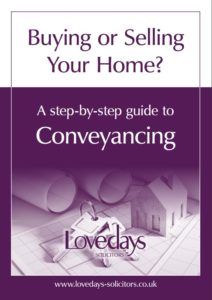- You & Your Family
- Your Job
- Family Law
- Divorce and Separation
- Finances on Divorce
- Dissolution of Civil Partnership
- Separation
- Cohabitation Agreements
- Finances on Breakdown of Cohabitation Relationship
- Prenuptial Agreements
- Grandparents' Rights
- Step-Parents' Rights
- Child Maintenance
- Parental Responsibility
- Paternity Disputes
- Buying Property Jointly
- Probate
- Wills
- Your Property
- Conveyancing
- Partnerships
- Disputes
- Boundary Disputes
- Dealing with Rent Arrears
- Japanese Knotweed Claims
- Landlord and Tenant Disputes
- Landlord Harassment & Illegal Eviction
- Negligence Claims Against Builders & Developers
- New Build Property Disputes
- Noisy Neighbour Disputes
- Personal Debt Collection
- Property Misrepresentations Claims
- Rights of Way Disputes
- Section 21 No Fault Evictions
- TOLOTA Claims
- Tree & Hedge Neighbour Disputes
- Your Business
- About Us
TOLATA Claims
If you own a property with your ex-partner that you both shared, you may be able to make a TOLATA claim. Our solicitors are experts in co-ownership dispute resolution and are highly experienced in making and defending TOLATA claims.
{quote}
What are TOLATA Claims?
Trusts of Land and Appointment of Trustees Act 1996 (TOLATA) claims are a type of claim that are used to determine the ownership of property that has been under joint or sole ownership. These claims are often between cohabiting couples but can also be between cohabiting friends or family members.
Types of TOLATA Claims
There are a few different types of TOLATA claim that can be made, these types are; Express Declarations of Trust, Resulting Trust, and Constructive Trust.
Express Declarations of Trust
An express declaration of trust is a document that outlines the interests of parties in a property. It is the most common type of land trust and identifies the property, the trustees, and the beneficial interests of each of the parties.
Express declarations of trusts can be used in TOLATA claims to help identify the legal owner of a property following cohabitation.
Resulting Trust
A resulting trust is a type of trust that is imposed by law without the need for an express agreement. These types of trust occur when one party has made a financial contribution to the purchase of a property but the property is registered under the name of someone else.
For example, if you were to contribute £100,000 towards the purchase of a £200,000 property registered under your partner’s name, a resulting trust would determine 50% ownership in your favour.
In the case of a TOLATA claim, a resulting trust may arise provided that there is sufficient evidence to suggest that the funds were provided to the registered owner of the property.
Constructive Trust
A constructive trust is a type of trust designed to prevent injustice or unfairness. They are often flexible and can arise in a variety of situations.
For example, if you and a partner agree to purchase a property together but your partner then buys a property in their sole name without your knowledge a constructive trust may be imposed in your favour. Another example is where you may have provided funds towards the improvement of a property (such as paying for renovations) a constructive trust may be imposed providing you with part ownership of the property.
A TOLATA claim may result in a constructive trust being imposed provided there is sufficient evidence to back your claim. If you wish to make a TOLATA claim, please contact our team today!
{quote}
How TOLATA Claims Arise
TOLATA claims arise when there is a dispute between two or more parties about the ownership of a particular property. These claims can arise for a variety of reasons, including divorce or in other co-ownership situations, for example when a property is left jointly between siblings on the death of a parent.
Legal vs Beneficial Ownership
TOLATA claims can arise when there is a dispute between the legal and beneficial ownership of a property. In this case, the legal owner of a property would be the person who is listed as the registered owner.
However, someone who has provided funds to help purchase or improve the property may be entitled to partial ownership of the property as a beneficial owner.
Unmarried Cohabitees
Another situation where a TOLATA claim may arise is between unmarried cohabitees. In this situation, you may have moved in with your partner into their property but you are not married. If you have helped fund improvements to the property or have lived together for a long period of time a TOLATA claim may grant part ownership of the property.
However, it is important to try and resolve these situations amicably as raising a claim could result in further disputes.
Family-Owned Properties
In some cases, TOLATA claims can arise between family members in a family home. This kind of claim is viable when you have lived with family members for a long period of time and also have a reasonable expectation of remaining in the property.
In this case, a reasonable expectation could be that you’re a live-in carer for a member of your family.
{quote}
The Legal Framework
The Trusts of Land and Appointment of Trustees Act 1996
The Trusts of Land and Appointment of Trustees Act 1996 is a piece of legislation that governs trusts of land. This legislation was enacted to reform the law on trusts of land and properties. Some key features of the legislation include:
- Introducing Express Trusts of Land which must be created in writing and cannot be used for illegal purposes.
- Providing courts with more flexibility when dealing with trusts or land including the power to make orders for the sale of land, the appointment and removal of trustees, and the variation of trusts.
- Introducing a number of new provisions relating to the occupation of a property or land such as the right of cohabitees to apply for orders of occupation.
Rights of the Owner vs Rights of the Occupier
The rights of an owner of a property are often greater than the rights of an occupier. The owner of a property has the right to use, possess, and dispose of the property as they see fit. They can also decide who and under what conditions someone can occupy the property.
An occupier of a property only has the right to occupy the property in accordance with the terms that they agreed with the owner.
Alternative Dispute Resolution (ADR)
As with any dispute, it is highly recommended that the issue is resolved amicably before seeking third party or court intervention. However, if you wish to involve a 3rd party to help resolve the dispute we recommend mediation services as they can help come to an amicable conclusion to the dispute.
Choosing an ADR can help reduce the cost of resolution of your dispute by avoiding costly court fees as well as, in many cases, reduce the damage to the relationship of involved parties. If you wish to resolve your dispute through mediation, contact our team today!
{quote}
How Lovedays Solicitors Can Help
With dispute resolution or court proceedings the longer the issue is left the worse it can get. If you have an issue please do not hesitate to contact us for a free
Frequently Asked Questions
There are a number of grounds for a TOLATA claim, including:
- Financial contributions - If you have made financial contributions to the purchase or improvement of a property, you may be able to make a TOLATA claim to establish your beneficial interest in the property.
- Non-financial contributions - If you have made non-financial contributions to the property, such as by caring for the children or by improving the property, you may be able to make a TOLATA claim to establish your beneficial interest in the property.
- Common intention - If you and the other party had a common intention to share the property, you may be able to make a TOLATA claim to establish your beneficial interest in the property.
The cost of making a TOLATA claim will vary depending on the level of complexity in the case. Although, it is important to note that making a TOLATA claim can often be expensive since they often give rise to court fees and require expert witnesses.
While a solicitor is not required to make a TOLATA claim, it is highly recommended that you seek legal advice from one before making a claim. A solicitor will be able to advise you on the merits of your claim as well as help you navigate the legal process.
Get Support Today
If you wish to make or defend against a TOLATA claim, contact us and our team will be happy to guide you through the process and help you resolve your dispute in a timely and amicable manner.

Free Guide
If you don’t know your leasehold from your freehold, then get our Free Conveyancing Guide. It contains details about the steps you will need to take with any property transactions. The Guide giving you detailed guidance on what your lawyer will be doing for you and what to look out for.


Lovedays Solicitors, Brooke-Taylors Solicitors, Potter and Co Solicitors and Andrew Macbeth Cash and Co Solicitors are the trading names of Derbyshire Legal Services Limited which is a company registered in England and Wales under company number 08838592. Registered office Sherwood House, 1 Snitterton Road, Matlock, Derbyshire, DE4 3LZ.
Authorised and Regulated by the Solicitors Regulation Authority under SRA ID number 637916.
-
01629 56660
-
This email address is being protected from spambots. You need JavaScript enabled to view it. -
Sherwood House
1 Snitterton Road
Matlock
Derbyshire
DE4 3LZ
© Copyright 2019 Derbyshire Legal Services Limited | Website by WebWorks